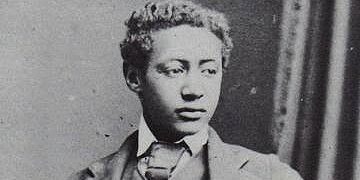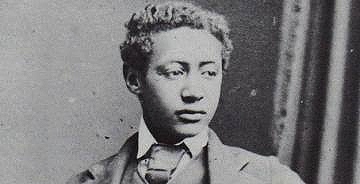Buckingham Palace has dismissed a plea to repatriate the remains of Prince Alemayehu, an Ethiopian prince who died as an orphan in the UK at the tender age of 18.
After being cared for by Queen Victoria, the prince was laid to rest in the catacombs of St George’s Chapel in Windsor Castle, but his family now seeks to return his body to Ethiopia over 150 years later, arguing that it is an injustice for him to remain in the UK.
However, the Palace has firmly rebuffed the request, highlighting the potential disturbance that could be caused to other individuals buried in the same chapel.
Notable figures interred there include Henry VI, Edward IV, Henry VIII, and George V.
A Palace spokesperson, speaking to the BBC, expressed the concern that exhuming Prince Alemayehu’s remains might disrupt the resting place of numerous others in the vicinity.
While acknowledging the importance of honoring the memory of the young prince, the statement emphasized the Royal Household’s responsibility to uphold the dignity of the departed.
The Palace authorities at Windsor Castle’s Royal mausoleum have historically accommodated Ethiopian delegates who wished to visit the chapel where Prince Alemayehu is laid to rest.
The prince’s tumultuous journey began when he was taken to Victorian England as a young boy by British soldiers following the ransacking of his father’s palace in northern Ethiopia in 1868.
British forces had been dispatched to negotiate the release of diplomatic hostages from Emperor Tewodros II’s palace in Maqdala were denied an audience with the Emperor.
In a three-day battle, the troops overcame the Emperor’s army, leading to the fall of his fortress and his subsequent suicide.
Tragically, the prince’s mother, an Empress passed away from illness shortly thereafter.
Under the care of the British, he was initially sent to the Raj in India and later transported to Britain.
Queen Victoria, touched by his plight, became his benefactor, arranging for his education at Rugby School and subsequently sending him to Sandhurst for military training.
However, he struggled to acclimate to British public school life and, after a brief term at Sandhurst and ten years in exile, he succumbed to pleurisy at his private tutor’s residence in Leeds in November 1879.
This is not the first time that Ethiopians have sought the return of Prince Alemayehu’s remains.
In 2007, the then-President of Ethiopia, Girma Wolde-Giorgis, formally requested Queen Elizabeth II to repatriate the prince’s body, but the plea was unsuccessful.
Abebech Kasa, a descendant of the prince, expressed her longing for his return, stating, “We want him back. We don’t want him to remain in a foreign country. He had a sad life. When I think of him, I cry. If they agree to return his remains, I would think of it as if he came home alive.”




































